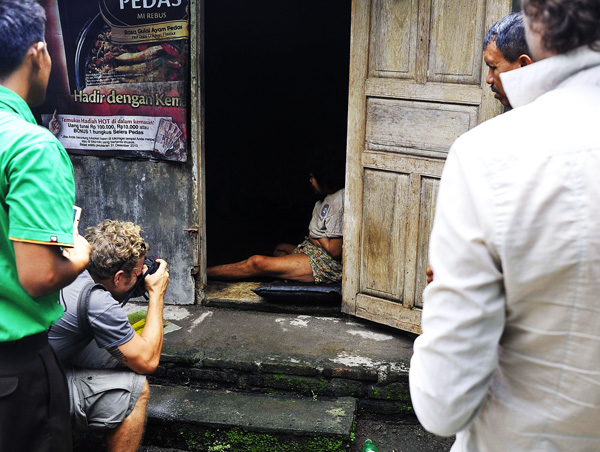The Swiss Health Observatory reported in August 2007 that 55 per cent of the population said they felt emotionally stable, up ten per cent on 1992. The number of people suffering from minor troubles like disturbed sleep patterns or nervous tension, as well as those with severe chronic problems dropped at the same time. However, more people have been consulting mental health professionals. Men are also more likely to see a specialist than women. Reduced stigma, better treatment and more understanding in the medical profession are said to be the reasons. Unfortunately those situation is far from near with the reality of mental health situation in Bali.
“A large number of mentally ill people in Bali are essentially abandoned, permanently kept under restrains, chained or in makeshift cages by their families, or community (pasung)”, said Professor Luh Ketut Suryani to Fritz Schaap a Switzerland journalist who sure that an article in a Swiss magazine will generate decent fund to help the Balinese people. “The conditions all these individuals are kept in would have been considered inhumane even for livestock in the West”, comment Fritz to Suryani during a shocking visit to meet the reality in Bali.
“The practice of pasung in Bali is a disgrace to our culture and a direct gross violation of human rights, while it has also contributed to the rise of suicide cases in Bali (approximately 150 suicides per year)”, add Suryani with misery. World Health Organization (WHO) has projected that, by the year 2030, mental disorders will be one of the leading causes of the global disease burden. Mental disorders are associated with significant long-term disability and decreased physical and psycho-social functioning. Poor mental health significantly contributes to a cycle of poverty, wherein people who experience social hardship and poverty are at an increased risk of mental illness, and conversely those with mental illness are at an increased risk of poverty. While most countries have mental health policies and plans, and many have mental health legislation, the standards and quality of mental health service provision vary widely between and within countries. Stigma associated with psychiatric conditions and lack of community acceptance of mental illness remains a major barrier throughout the region. Can Switzerland help to change mental health situation in Bali?



